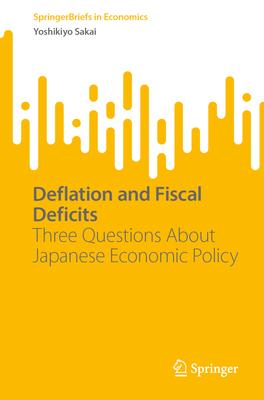In this study on the Japanese economy, the author focuses on three problems related to economic policy and presents their answers. The author analyzes (i) what mechanisms exist for fiscal policy and the price level, (ii) whether the MMT proposition that public deficits increase people’s wealth and savings fits into the standard macro model, and (iii) whether Blanchard’s assertion that fiscal deficits are net wealth in the US economy can be applied to Japanese economy as well. The propositions of Sims’ FTPL, Kelton’s MMT, Japan’s Ricardian type argument, and the non-Ricardian type of government by Blanchard have been understood as independent economic perceptions, but they will be theoretically shown as a coherent story. Namely, this study presents a macroeconomic framework that includes the financial sector and derives Sims’ proposition that "fiscal policy can be the sole determinant of the price level." It also shows that MMT’s claim that "budget deficits increase our wealth and collective savings" can inevitably hold within this framework. Furthermore, it presents a model that consistently explains that public debt leads to financial collapse but contributes to economic welfare.
| FindBook |
有 1 項符合
Deflation and Fiscal Deficits: Three Questions about Japanese Economic Policy的圖書 |
 |
Deflation and Fiscal Deficits: Three Questions about Japanese Economic Policy 作者:Sakai 出版社:Springer 出版日期:2024-04-10 語言:英文 規格:平裝 / 普通級/ 初版 |
| 圖書館借閱 |
| 國家圖書館 | 全國圖書書目資訊網 | 國立公共資訊圖書館 | 電子書服務平台 | MetaCat 跨館整合查詢 |
| 臺北市立圖書館 | 新北市立圖書館 | 基隆市公共圖書館 | 桃園市立圖書館 | 新竹縣公共圖書館 |
| 苗栗縣立圖書館 | 臺中市立圖書館 | 彰化縣公共圖書館 | 南投縣文化局 | 雲林縣公共圖書館 |
| 嘉義縣圖書館 | 臺南市立圖書館 | 高雄市立圖書館 | 屏東縣公共圖書館 | 宜蘭縣公共圖書館 |
| 花蓮縣文化局 | 臺東縣文化處 |
|
|
圖書介紹 - 資料來源:博客來 評分:
圖書名稱:Deflation and Fiscal Deficits: Three Questions about Japanese Economic Policy
內容簡介
|











